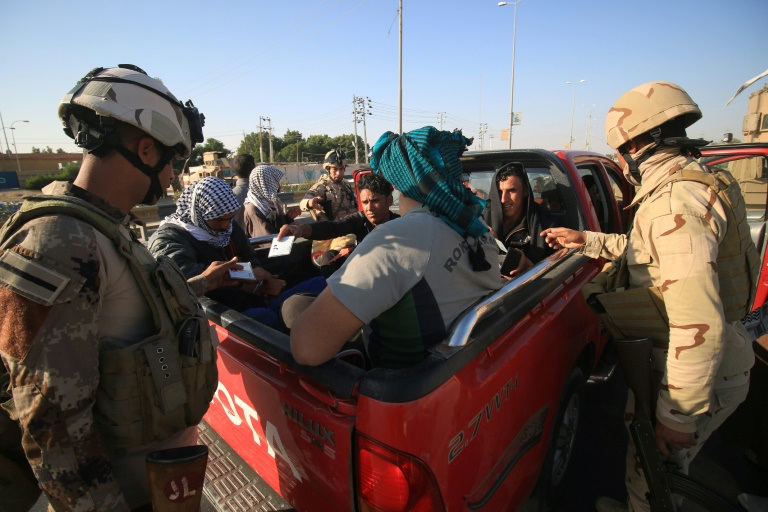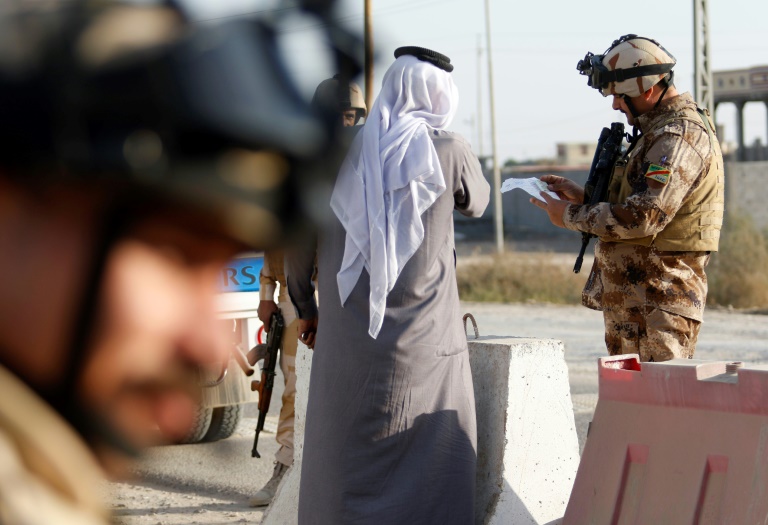Daily Lotto results: Monday, 28 April 2025
In the north of Basra province, “bullets talk,” he said.
Feuds between the region’s half-dozen tribes often flare into pitched battles with assault rifles and machineguns, killing bystanders and driving a never-ending cycle of revenge attacks.
Security forces, fearing reprisals, rarely intervene.
The region near Iraq’s southern border with Kuwait has long been the scene of inter-tribal battles over business disputes, questions of honour or even football matches.
But with security forces deployed to the country’s north to battle the Islamic State group (IS), Basra residents caught in the crossfire say they feel abandoned.
“Peaceful families that have no weapons can’t live,” said Daud, 41.
The clashes have transformed residential areas into battlefields, he said.
It was during yet another gunfight that Daud’s son Ali, 15, took a bullet to the shoulder as he stood in front of the family home.
That finally prompted the family to move to Basra city, away from the tribal areas.
Residents of the province’s north say security forces are powerless to halt the clashes.
In the absence of heavily armed military and federal police forces, “local police are reluctant… to get involved in these battles because there is nothing to protect them,” said provincial council member Ghanem Hamid.

Iraqi soldiers searching for weapons and wanted people involved in tribal conflicts in northern Basra check passenger’s documents at a checkpoint on January 13, 2018
Even in situations where they could prevent the violence, police officers — many of whom hail from the tribes involved — hesitate to intervene for fear of later reprisals.
Haydar Ali, a 34-year-old engineer, suggested deploying soldiers and policemen from other provinces “who have no social relations or tribal ties that could affect their role”.
Residents have called on security forces to confiscate weapons, but regular raids have had little impact on the vast numbers of arms circulating in the province.
Tribes in Basra, the only province of Iraq with access to the sea, obtained a glut of weapons when the army of the late Saddam Hussein withdrew from Kuwait in 1991 in a hasty retreat.
They further boosted their stockpiles following the US-led invasion in 2003, said Sheikh Abbas al-Fadhli, who advises the provincial governorate on tribal affairs.
The tribal disputes have a direct impact on Basra’s economy.
Clashes in the oil-rich region, a base for several foreign companies and oil refineries, have caused many to suspend operations, said General Jamil al-Shomary, an army commander in Basra.
“A tribal fight can close down roads for three or four days,” preventing people from reaching work, he said.
“There have even been attacks against oil companies.”
– ‘Condemned by society’ –
Ali said putting an end to the violence would also require a change in mentalities.
“Criminals and people who provoke tribal clashes need to be condemned by society before they’re condemned by the courts,” he said.
Teacher Saadoun Jassim al-Ali, 46, blamed “lawlessness and impunity” that had allowed instigators of clashes to remain at large.
Sheikh Mohammad al-Zidawi, an elder of the Bu Zayd tribe, said “the wide availability of weapons” was to blame.

An Iraqi soldier checks the documents of a driver at a checkpoint in Basra on January 13, 2018
He is a member of a committee set up to mediate between tribes.
In 2017, “it resolved 176 tribal disputes, including some that had lasted 15 years,” he said.
The committee organises meetings between dignitaries from tribes involved in disputes.
Families of slain tribal members spend hours wrangling over the “blood price” — financial compensation for their bereavement — or the banishment of certain tribal members.
Kirk Sowell, a political risk analyst who publishes Inside Iraqi Politics, said the Hashed al-Shaabi paramilitary coalition set up to fight IS was complicating matters.
“Many of the myriad of Hashed groups are turning into local mafias,” he said.
“Basra has both a major tribal violence problem and (a problem with) organised crime.”
Download our app